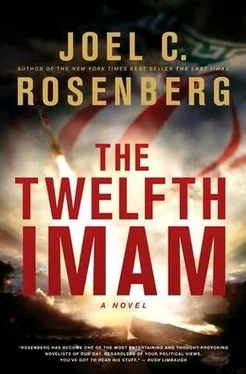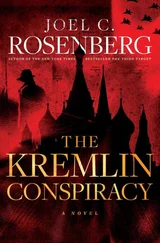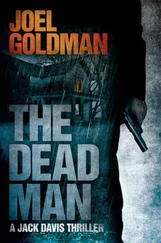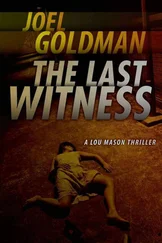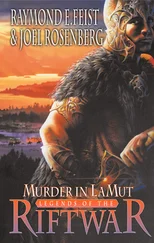
Ten minutes later, the two men arrived at CIA headquarters.
They cleared perimeter security, parked underground, cleared internal security, and got on the elevator. Zalinsky had still said little-barely even a “good morning” to the guards-and David was getting annoyed. The two were supposed to be having breakfast together, catching up on the news, dishing a little gossip from the field, and gearing up for a grueling day of budget meetings and mind-numbing paperwork. Instead, Zalinsky was threatening to pull David off a project he loved for no apparent reason and then giving him the silent treatment. It seemed unprofessional and unfair.
But when Zalinsky hit the button for the seventh floor instead of the sixth, David tensed. The Near East Division-their division-was a suite of offices on the sixth floor. The director of central intelligence and the senior staff worked one flight up. David had never been, but he was headed there now.
The elevator door opened. Zalinsky turned left. David followed close behind. Down the hall, they stepped into a high-tech conference room and were greeted by a balding man in his mid to late fifties who introduced himself as Tom Murray.
David had never met Murray before, but he had certainly heard of the man. Everyone in the Agency had. The deputy director for operations was a legend in the clandestine services. In March 2003, he masterminded the capture in Pakistan of KSM-Khalid Sheikh Mohammed-the right-hand man to Osama bin Laden and the architect of the 9/11 attacks. It was Murray, working closely with the British secret services in the summer of 2006, who planned the penetration and dismemberment of an al Qaeda cell in England that was about to hijack ten transatlantic jumbo jets en route from London to the U.S. and commit what one Scotland Yard official had publicly described as “mass murder on an unimaginable scale.” And as far as David could tell, it was Murray who convinced President William Jackson to begin using Predator drones to take out key al Qaeda and Taliban leaders hiding in villages along the Pakistan-Afghan border when intelligence derived from David’s own penetration of Mobilink’s databases proved actionable.
“Good to finally meet you, Agent Shirazi,” Murray said, shaking David’s hand warmly. “I’ve heard a lot of good things about you. Jack here speaks very highly of you. Please, have a seat.”
David smiled, thanked the DDO, and took his seat next to an expressionless Zalinsky. There was a knock on the door. Murray hit a button on the arm of his chair, which electronically unlocked the secure entrance. In came an attractive blonde in her late twenties or early thirties, wearing a conservative black suit, a robin’s egg blue silk blouse, black pumps, and a pearl necklace obscured somewhat by the Agency ID dangling from her neck.
“Sorry I’m late, sir,” she said with a slight European accent David pegged from northern Germany or perhaps Poland. “My flight just got in.”
“That’s fine, Agent Fischer,” Murray replied. “We’re just getting started. You know Jack Zalinsky.”
“Yes, good to see you again, Jack,” she said, her smile warm and genuine.
As the two shook hands, David couldn’t help but notice she was wearing a pale shade of pink nail polish but not a wedding or engagement ring.
“And this is Agent David Shirazi,” Murray said, “a fellow NOC.”
The last phrase caught David off guard. He hadn’t taken this woman as a nonofficial cover operative. An analyst, maybe, but undercover work? She was hardly the type to blend into the woodwork. David tried not to show his surprise as he shook her hand and caught for the first time just how blue her eyes were behind her designer glasses.
“Reza Tabrizi, it’s great to meet you in person,” she said with a friendly wink.
David froze. Only a handful of people knew his alias. How did she?
“It’s okay, David,” Murray assured him. “Eva’s a first-rate agent and actually helped develop your cover story with Jack several years ago. She’s been keeping an eye on you ever since.”
“Is that so?”
“It is,” she said confidently, setting her leather organizer on the desk, then looking David in the eye and recounting his alias from memory. “Reza Tabrizi. Twenty-five. Your parents were Iranian nationals, both born in Tehran. You, on the other hand, were born and raised in Canada, in a little town just outside of Edmonton, Alberta. Your father worked in the oil sands industry. Your mother ran a little sewing shop. But your parents were killed in a small plane crash just before you graduated high school. No siblings. Few close friends. You’re a computer genius but a bit of a recluse. No Facebook page. No MySpace. No Twitter. After your parents died, you didn’t want to stay in Canada. You decided to come to Germany for college. Got a degree in computer science from the Ludwig-Maximilians-University in Munich. Now you work for a rapidly growing German company, Munich Digital Systems. They develop and install state-of-the-art software for mobile phones and satellite phone companies. You’re a relatively new but increasingly successful sales rep. The company executives have no idea you’re actually an American. They certainly don’t know you work for the CIA, and they’d fire you immediately if they ever found out.”
Eva stopped for a moment and asked, “How am I doing?”
“I’m impressed,” David conceded. “Please, go on.”
She smiled. “You carry a German passport. You’ve got a Swiss numbered account where we send you funds. You’ve got a storage facility in Munich where you keep weapons, false documents, communications gear, and other essentials. Since August you’ve been working mostly with Mobilink in Pakistan, building up your field experience, working your contacts, establishing your cover, racking up some frequent-flier miles, taking down quite a few bad guys, and probably having a little fun along the way.”
She paused and raised her eyebrows. “Am I wrong?”
David suppressed a smile. “No comment.”
“That’s plenty,” the DDO said. “Please, take a seat, all of you.”
David wondered when he was going to learn even a fraction as much about Eva Fischer as she’d just rattled off about him, but he guessed this was not exactly the right moment to ask. There were more important issues on the table, like somebody’s crazy idea of taking him off the Karachi initiative just when it was actually bearing fruit. Was that Zalinsky’s doing or Murray’s? And what on earth for?
CIA Headquarters
Langley, Virginia
“You’re going to Iran,” Murray said.
The sentence just hung in the air for a few moments.
David Shirazi stared at Murray in disbelief, then at Zalinsky, and back to Murray. “When?”
“Seventy-two hours,” Murray said. “Your code name is Zephyr.”
God of the west wind? They had to be kidding.
“What’s the mission?”
“Jack and Eva here will walk you through the specifics,” Murray explained. “But the short version is this: we need you to penetrate the highest levels of the Iranian regime, recruit assets, and deliver solid, actionable intelligence that can help us sink or at least slow down Iran’s nuclear weapons program. We’re currently positioning NOC teams throughout the country ready to sabotage facilities, intercept shipments, you name it. What we don’t have is someone inside giving us hard targets.”
David tried to process what his boss was saying, but it was such a radical departure from what he had been doing that he couldn’t imagine it working. Sure, his family was Iranian, but he had never set foot in the country. Yes, he spoke Farsi, but so did eighty million other people in the world. What’s more, he’d just spent the last several years studying Pakistani, Afghani, and al Qaeda leaders, organizations, and cultures. He was increasingly an expert in such matters and thus increasingly valuable in an intelligence agency that still hadn’t caught bin Laden all these years after 9/11. As for Iran, he neither understood the first thing about Persian politics nor really much cared.
Читать дальше
